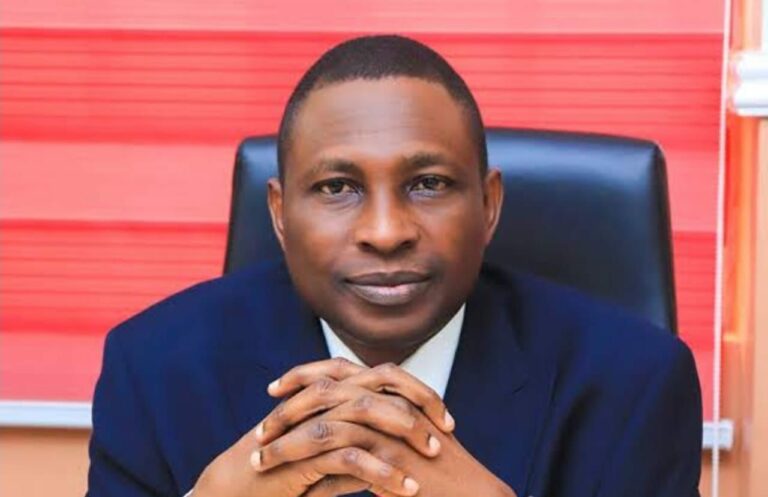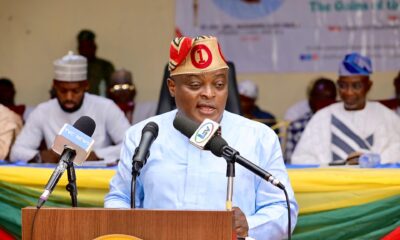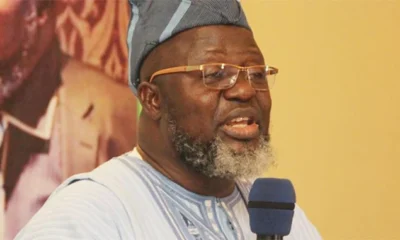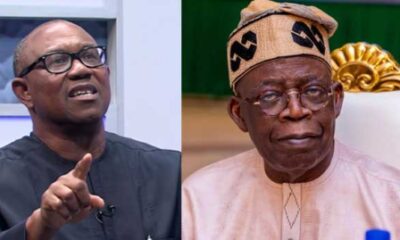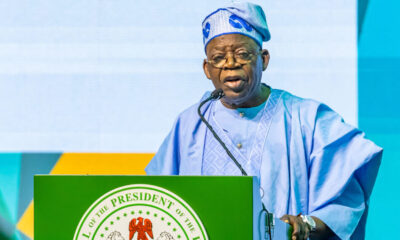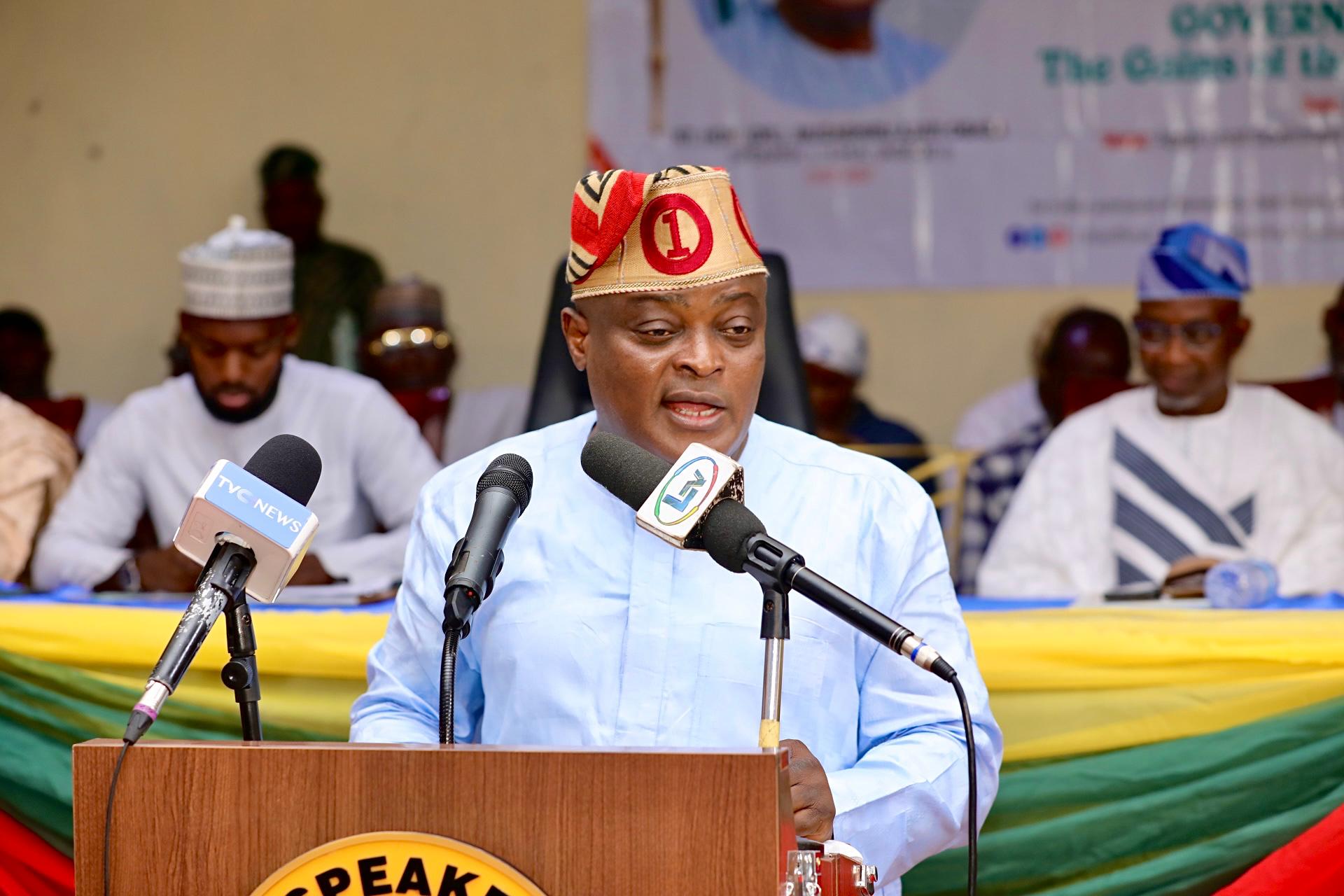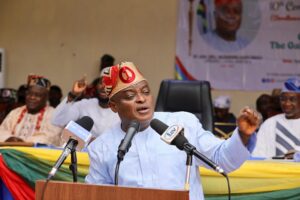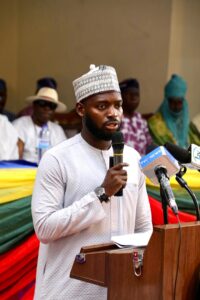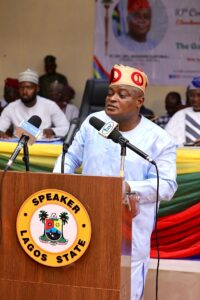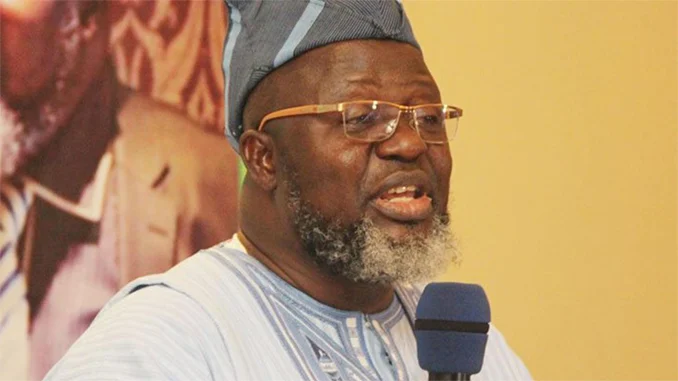The Chairman of the Economic and Financial Crimes Commission, Ola Olukoyede, has alerted the public that some corrupt Nigerian politicians are now concealing their illegal wealth in cryptocurrencies to avoid detection by anti-graft agencies.
Olukoyede explained that the EFCC had identified a rising pattern in which dishonest public officials were using cryptocurrency wallets to hide embezzled funds and carry out illicit financial transactions.
He disclosed this on Thursday during an event marking Africa Anti-Corruption Day.
The event, monitored by The PUNCH, was held concurrently in Abuja, Lagos, and Ibadan, Oyo State.
Other speakers at the gathering expressed concern that Nigerians frequently fall victim to crypto-related scams, including the CBEX fraud, which saw citizens lose more than N1.3tn.
Olukoyede stated, “Virtual asset fraud is on the rise. Our findings show that fraudulent politicians are already perfecting schemes and hiding their loot in cryptocurrencies to beat the investigative blackness of anti-corruption agencies. Stolen funds and unexplained wealth are being warehoused in wallets and payment for services are being done through this window.”
He cautioned that although virtual assets have revolutionised global financial transactions, they have also opened new channels for money laundering and economic crimes.
He said, “Technology is moving at a supersonic speed around the world. The advent of virtual assets is a response to one of the qualities of money as a store of value like it is known in our elementary economies. However, as with every progressive innovation, fraud starts to usually evolve, evolve ways of perverting their genuine purposes.”
Olukoyede noted that the EFCC was not overwhelmed by these new methods, as ongoing training and intelligence collaboration had empowered the commission to detect and pursue such activities.
“But for us in the EFCC, virtual asset fraud and investment scams are not hard nuts to crack. Proactive and broad-based training and intelligence are bringing fraudulent schemes to the fore,” he said.
At the Lagos event, Olukoyede, represented by Chief of Staff/Lagos Zonal Director, Lagos Zonal Directorate 1, C. E. Michael Nzekwe, noted that virtual assets had become powerful tools for fraudsters and corrupt officials.
He observed that crypto fraud was growing both in Nigeria and across Africa, with criminals taking advantage of the anonymity and borderless features of blockchain platforms.
He pointed out that although virtual assets were created for convenience and as a value store, some individuals had repurposed them for illegal use.
Speaking in Ibadan, where the event was held at the Jagz Hotel conference hall, Olukoyede, represented by Acting Zonal Director of the Ibadan Zonal Directorate, Hauwa Ringin, said virtual asset fraud was spreading rapidly across Africa, much like investment fraud.
In Abuja, Muhammad Abdullahi, Deputy Governor of Economic Policy, representing Central Bank of Nigeria Governor Yemi Cardoso, revealed that Nigeria had witnessed a surge in crypto transactions, raising systemic financial risks.
He said over $56bn worth of crypto transactions were recorded in Nigeria between July 2022 and June 2023.
He said, “In Nigeria, over $56bn in crypto-related transactions were recorded between July 2022 and June 2023, making the country Africa’s digital transaction leader.”
However, he warned that this expansion had negative consequences.
He cited the CBN’s 2024 Financial Stability Report, which showed a 45% increase in financial fraud, with 70% of recorded losses linked to digital platforms and unregulated virtual asset services.
“Furthermore, over 30 Ponzi-style investment schemes exploiting digital currency narratives have been flagged by the SEC and other agencies,” he said.
He warned that these trends could tarnish Nigeria’s image on the international financial scene.
“These developments pose major risks, including loss of consumer confidence, weakening of financial integrity, and reputational challenges for Nigeria in the global financial system,” he said.
Cardoso noted that the CBN and the Securities and Exchange Commission had established a joint task force to oversee the virtual asset space, with backing from the EFCC and the Nigerian Financial Intelligence Unit.
He said, “We have intensified our regulatory and supervisory responses in several critical areas. Namely, on virtual accounts, following an extensive review of the operations of virtual accounts by deposit money banks and their fintech partners, we uncovered systemic weaknesses. These include poor KYC, knowing of customer practices, and insufficient transaction monitoring. We have acted to ensure that all firms strengthen KYC processes, improve oversight of fintech partnerships, and adhere to AML-CFT obligations.”
Cardoso also said the CBN was collaborating with the EFCC to develop a National Virtual Asset Wallet to store confiscated digital assets.
He emphasised the need for public education, particularly targeting youths who are often misled by fraudulent investment platforms.
“Technology-driven financial crimes are borderless, faceless, and fast-moving. Combating them requires strong institutions and coordinated action,” he said.
In Lagos, anti-fraud expert Kaina Garba explained key concepts surrounding virtual assets.
He described cryptocurrencies and tokens as digital forms of value that could be transferred online but are different from traditional money or securities like stocks.
Garba cautioned that the growth of digital finance had led to new crimes, including Ponzi schemes disguised as crypto projects, fake coin launches, phishing of crypto wallets, and laundering funds via crypto mixers.
“Criminals now exploit virtual assets to defraud unsuspecting investors. Many disappear with people’s hard-earned money after marketing fictitious tokens or projects,” he said.
He noted that while crypto had been unregulated in Nigeria in the past, the new Investment and Securities Act 2025 had created a legal framework for oversight.
He said the EFCC had responded by enhancing cybercrime units, investing in digital forensics, and increasing local and global collaboration.
Speaking for the SEC, Divisional Head of Legal and Enforcement, John Achile, reaffirmed the agency’s responsibility under the 2025 Investment and Securities Act.
“The SEC has a dual responsibility: investor protection and market development. With digital assets now legally recognised, we are regulating this space through structured incubation programmes and licensing procedures,” Achile stated.
He said the SEC had formed a Digital Asset Division and designed two streams—accelerated and managed—for evaluating applicants’ business models before granting licences.
“We do not just issue licences. We engage prospective exchanges or service providers to understand their operations and determine compliance before approval,” he explained.
In Ibadan, during a lecture themed “Understanding Virtual Asset and Investment Fraud,” criminology professor Oludayo Tade said, “People fall victim to fraud. What can we do? We need to ensure that anything too good to be true is a red flag. It’s a red flag because you know that we are in Nigeria and you know the condition of things. You know that even if you invest in a bank, the returns cannot be 50 per cent and somebody is offering you that to happen within a week. Another thing that they do is also to use the image, the reputation of individuals and organisations to launder their fraudulent tactics. But to prevent virtual fraud, virtual assets, you need to increase and improve on awareness level. How many Nigerians are aware of it? I’m very sure that those who fell victim to CBEX would find another scheme that is coming and will still join because people are looking for opportunities.”
In a goodwill message, Oyo State Sector Commander of the Federal Road Safety Corps, Rosemary Alo, represented by DCC OPS, Olugbesan, noted that joint efforts to monitor vehicle movement, especially against unregistered, fake, or cloned number plates, had helped disrupt illicit financial flows and aided the recovery of criminal proceeds.

 BIG STORY4 days ago
BIG STORY4 days ago
 BIG STORY2 days ago
BIG STORY2 days ago
 BIG STORY4 days ago
BIG STORY4 days ago
 BIG STORY2 days ago
BIG STORY2 days ago
 BIG STORY3 days ago
BIG STORY3 days ago
 BIG STORY4 days ago
BIG STORY4 days ago
 BIG STORY4 days ago
BIG STORY4 days ago
 BIG STORY4 days ago
BIG STORY4 days ago




